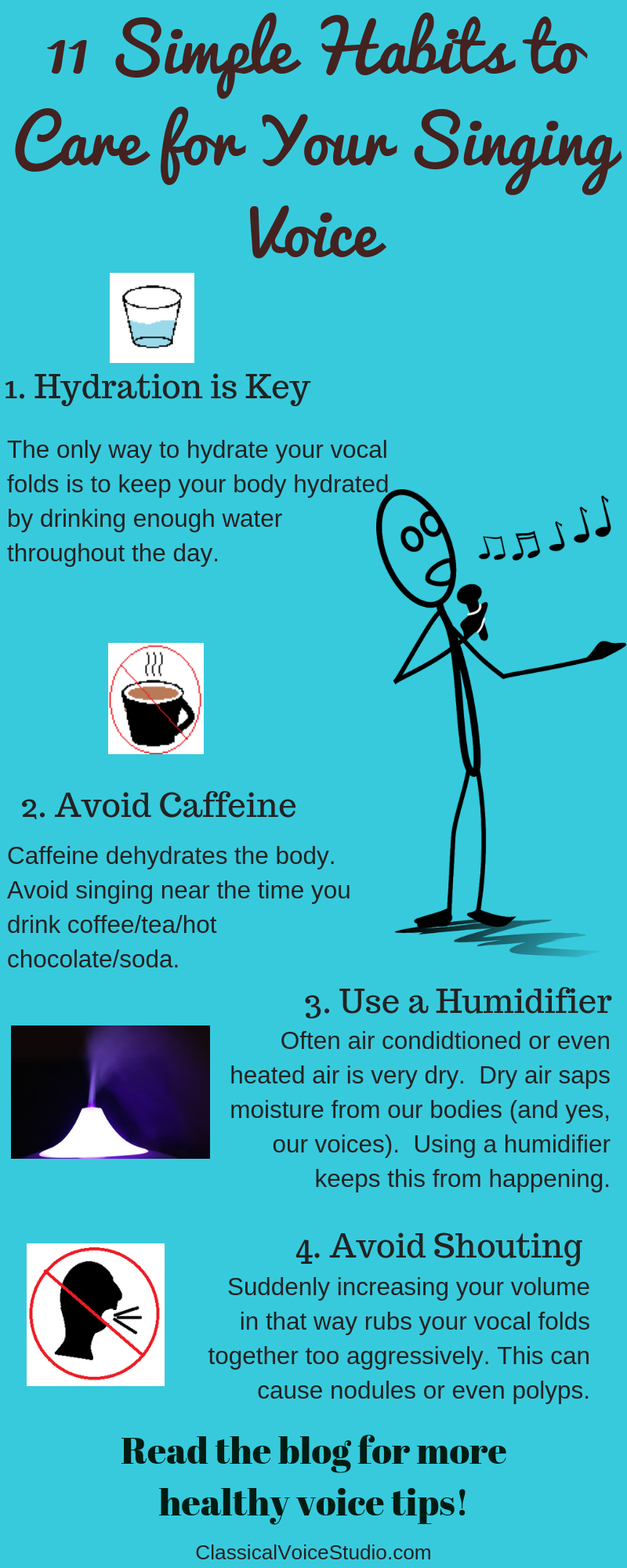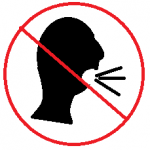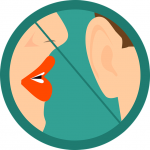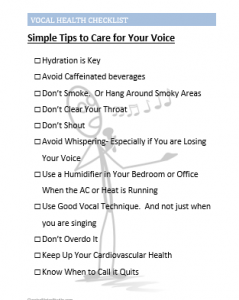[et_pb_section fb_built=”1″ admin_label=”Hero Section” _builder_version=”3.0.83″ use_background_color_gradient=”on” background_color_gradient_start=”#1bb3eb” background_color_gradient_end=”#25efcb” background_color_gradient_direction=”72deg” custom_padding=”0|0px|0|0px|false|false”][et_pb_row padding_top_1=”21px” _builder_version=”3.17.6″ background_color=”#4472c4″ background_size=”initial” background_position=”top_left” background_repeat=”repeat”][et_pb_column type=”3_5″ _builder_version=”3.0.47″ padding_top=”21px” parallax=”off” parallax_method=”on”][et_pb_text _builder_version=”3.0.89″ text_font=”||||||||” header_font=”Poppins||||||||” header_text_color=”#ffffff” header_font_size=”56px” header_line_height=”1.3em” animation_style=”fade”]
11 Simple Habits to Care for Your Singing Voice
[/et_pb_text][et_pb_text _builder_version=”3.0.89″ text_font=”Poppins||||||||” text_text_color=”rgba(255,255,255,0.8)” text_line_height=”1.8em” animation_style=”fade” animation_delay=”100ms”]Keeping Your Voice Healthy (so you can sing forever!)[/et_pb_text][et_pb_text _builder_version=”3.17.6″ inline_fonts=”Journal”]
*FREE printable checklist at the bottom of this post*
[/et_pb_text][/et_pb_column][et_pb_column type=”2_5″ _builder_version=”3.0.47″ parallax=”off” parallax_method=”on”][et_pb_text _builder_version=”3.17.6″] [/et_pb_text][/et_pb_column][/et_pb_row][/et_pb_section][et_pb_section fb_built=”1″ _builder_version=”3.17.6″ custom_padding=”0|0px|0|0px|false|false”][et_pb_row custom_padding=”0|0px|0|0px|false|false” _builder_version=”3.17.6″][et_pb_column type=”4_4″ _builder_version=”3.0.47″ parallax=”off” parallax_method=”on”][et_pb_text _builder_version=”3.17.6″ inline_fonts=”Alegreya Sans”]
[/et_pb_text][/et_pb_column][/et_pb_row][/et_pb_section][et_pb_section fb_built=”1″ _builder_version=”3.17.6″ custom_padding=”0|0px|0|0px|false|false”][et_pb_row custom_padding=”0|0px|0|0px|false|false” _builder_version=”3.17.6″][et_pb_column type=”4_4″ _builder_version=”3.0.47″ parallax=”off” parallax_method=”on”][et_pb_text _builder_version=”3.17.6″ inline_fonts=”Alegreya Sans”]
Singing is such an amazing gift (that everyone has, some just take longer to find it), you would never want to lose that. You want to be able to sing for your entire life.
You need to take care of your voice and I want to show you how. Here are today’s tips for keeping your voice healthy! Download the checklist and post it on your refrigerator, keep a copy in your practice folder, or wherever else you look everyday to keep you on track.
[/et_pb_text][/et_pb_column][/et_pb_row][/et_pb_section][et_pb_section fb_built=”1″ admin_label=”About Us Section” _builder_version=”3.0.83″ custom_padding=”0|0px|0|0px|false|false”][et_pb_row custom_padding=”|||” _builder_version=”3.0.89″][et_pb_column type=”4_4″ _builder_version=”3.0.47″ parallax=”off” parallax_method=”on”][et_pb_text _builder_version=”3.17.6″ text_font=”Open Sans||||||||” text_text_color=”#486066″ text_font_size=”15px” text_line_height=”1.8em” header_font=”||||||||” inline_fonts=”Alegreya Sans”]
 1. Hydration is Key. Drink more water.
1. Hydration is Key. Drink more water.
But not because your throat is dry.
Many people think that if they drink water when they have a dry or scratchy throat, it will re-hydrate their vocal cords. This just is not true. It will only alleviate where water can actually reach. To explain this, we need a brief anatomy lesson.
Your vocal folds (correct anatomical term for vocal cords) sit atop your trachea which connects your oral cavity to the lungs. (Not to be confused with your esophagus which connects your oral cavity to your stomach.)
Your body wants to keep solids and liquids from entering the lungs, so we have an epiglottis. The epiglottis is a leaf-shaped piece of cartilage that covers the vocal folds when we swallow. (See the Free Dictionary for more information)
So, you see, water that you drink will never touch your vocal folds. The only way to hydrate your vocal folds is to keep your body hydrated by drinking enough water throughout the day.
[/et_pb_text][/et_pb_column][/et_pb_row][et_pb_row custom_padding=”0|0px|27px|0px|false|false” _builder_version=”3.17.6″][et_pb_column type=”1_4″ _builder_version=”3.0.47″ parallax=”off” parallax_method=”on”][et_pb_image src=”http://classicalvoicestudio.com/wp-content/uploads/2018/12/cup-of-coffee-1.png” align=”right” _builder_version=”3.17.6″ animation_style=”slide”][/et_pb_image][/et_pb_column][et_pb_column type=”3_4″ _builder_version=”3.0.47″ parallax=”off” parallax_method=”on”][et_pb_text _builder_version=”3.17.6″ inline_fonts=”Alegreya Sans”]
2. Avoid Caffeinated Beverages
I know, you need your morning cup of joe to get going. The idea here is not to overdo it. Caffeine dehydrates the body. Avoid singing near the time you drink coffee/tea/hot chocolate/soda.
For every cup of coffee you consume, drink an extra glass of water. For tea and other caffeinated beverages, the amount of caffeine is much less than coffee, so maybe for every 2 cups, add an extra glass of water.
[/et_pb_text][/et_pb_column][/et_pb_row][et_pb_row custom_padding=”0|0px|0|0px|false|false” _builder_version=”3.17.6″][et_pb_column type=”4_4″ _builder_version=”3.0.47″ parallax=”off” parallax_method=”on”][et_pb_image src=”http://classicalvoicestudio.com/wp-content/uploads/2018/12/cigarette.png” _builder_version=”3.17.6″][/et_pb_image][et_pb_text _builder_version=”3.17.6″ inline_fonts=”Journal,Alegreya Sans”]
3. Don’t Smoke. Or Hang Around Smoky Areas
Smoking is one of the worst things a singer can do to themselves. (Not that it’s good for anyone to begin with.) I think we all know that second-hand smoke can be just as bad as smoking yourself, but just in case you didn’t, avoid hanging out around others while they are smoking. Remember that smoke can hang around on clothing and in upholstery. Breathing that in is just like breathing it in while the person is actually smoking.
It might not be completely possible to avoid all second-hand smoke if you have friends and family who smoke, but try to hang out with them in well ventilated areas. This will reduce the smoke you are exposed to.
Smoking of any kind (tobacco or marijuana) is very harmful to your vocal folds. Watch How Smoking Affects the Voice, to learn just how bad it can actually get.
[/et_pb_text][/et_pb_column][/et_pb_row][et_pb_row custom_padding=”27px|0px|0|0px|false|false” _builder_version=”3.17.6″][et_pb_column type=”4_4″ _builder_version=”3.0.47″ parallax=”off” parallax_method=”on”][et_pb_text _builder_version=”3.17.6″]
4. Don’t Clear Your Throat
Your vocal folds are not cords. Putting something quite complicated very simply, they are tissue covered with a mucus membrane. They are fairly delicate. When you clear your throat, you are rubbing your vocal folds together very forcefully. This causes a lot of friction. If you do it often enough, the mucus cannot keep up and eventually the fragile tissue is exposed and can form lesions (can be nodes or polyps).
You’re probably thinking, yeah, I don’t want the mucus to keep up, that’s why I’m clearing my throat in the first place! I get you. I am not immune to throat clearing when I have a cold or my allergies are acting up, either. But there are healthier ways to rid yourself of the phlegmy feeling.
- Drink more water. The action of swallowing will bring take of the post-nasal drip out of the equation.
- Drink hot (but not scalding) caffeine-free tea. Lemon and peppermint are good options
- Use Musinex or similar OTC remedy. These will thin out the mucus (but not eliminate it altogether)
- Do NOT use pseudoephedrine or phenylephrine (nasal decongestants). These will dry out ALL the mucosal membranes in the body, not just the ones in your sinuses. That means that every time your vocal folds vibrate (talking or singing or coughing, etc), they are exposed and at risk for lesions.
- Perform siren or wheelies (video coming soon)
[/et_pb_text][/et_pb_column][/et_pb_row][et_pb_row custom_padding=”0|0px|4px|0px|false|false” _builder_version=”3.17.6″][et_pb_column type=”4_4″ _builder_version=”3.0.47″ parallax=”off” parallax_method=”on”][et_pb_text _builder_version=”3.17.6″ inline_fonts=”Journal,Alegreya Sans”]
 5. Don’t Shout
5. Don’t Shout
For the same reasons you don’t want to clear your throat, you don’t want to shout. Suddenly increasing your volume in that way rubs your vocal folds together too aggressively.
[/et_pb_text][/et_pb_column][/et_pb_row][et_pb_row custom_padding=”0|0px|0|0px|false|false” _builder_version=”3.17.6″][et_pb_column type=”4_4″ _builder_version=”3.0.47″ parallax=”off” parallax_method=”on”][et_pb_text _builder_version=”3.17.6″ inline_fonts=”Journal,Alegreya Sans”]

6. Avoid Whispering- Especially if You are Losing Your Voice
When you whisper, your vocal folds still adduct in order to produce some type of sound that can be understood as speech, but they don’t close all the way. This allows more air to come through, drying out your vocal cords.
If you feel like you’re are losing your voice, this will only make matters worse. If you need to communicate, speak with your real voice using short phrases if necessary. Better yet, write it down. I have led many a choir rehearsal using a white board when I have been ill.
[/et_pb_text][/et_pb_column][/et_pb_row][et_pb_row custom_padding=”27px|0px|0|0px|false|false” _builder_version=”3.17.6″][et_pb_column type=”4_4″ _builder_version=”3.0.47″ parallax=”off” parallax_method=”on”][et_pb_text _builder_version=”3.17.6″ inline_fonts=”Journal,Alegreya Sans”]
 7. Use a Humidifier in Your Bedroom or Office When the AC or Heat is Running
7. Use a Humidifier in Your Bedroom or Office When the AC or Heat is Running
Ever notice that your skin dries out in cold weather? The same thing is happening to your vocal folds. Because cool air cannot hold as much moisture as warm air, the dry air is basically sucking the moisture out of you (gotta love osmosis). So, when the AC is running, the air temperature drops and therefore the humidity drops.
I can already hear you- “but I turned on the AC because it was too hot and humid!” Think about it this way, in order to bring your high temperature room down to a comfortable level, the air pumping out of the AC must be significantly cooler (yay thermodynamics!). That cool air is pulling the moisture out of the air. Too much moisture. You need to replace some of it to keep your voice and your skin happy.
You probably have felt similarly when the heat is on. Especially if you have forced hot air. Forced hot air is very, very dry. This will dry out your skin and your voice just like the AC will. Again, because of osmosis. Water likes to be even, so if the moisture outside your body is less than the moisture of your body, the outside air is going to steal it from you. Don’t let your heater be a thief. Use a humidifier.
[/et_pb_text][/et_pb_column][/et_pb_row][et_pb_row custom_padding=”27px|0px|0|0px|false|false” _builder_version=”3.17.6″][et_pb_column type=”4_4″ _builder_version=”3.0.47″ parallax=”off” parallax_method=”on”][et_pb_text _builder_version=”3.17.6″ inline_fonts=”Journal,Alegreya Sans”]
8. Use Good Vocal Technique. And not just when you are singing
To maintain good vocal health, you should use good vocal technique whether you are singing or speaking. This is especially true if you have a job that requires you to use your voice frequently (teachers, actors, motivational speakers, singers, etc. etc.)
[/et_pb_text][/et_pb_column][/et_pb_row][et_pb_row _builder_version=”3.17.6″][et_pb_column type=”1_2″ _builder_version=”3.0.47″ parallax=”off” parallax_method=”on”][et_pb_text _builder_version=”3.17.6″ inline_fonts=”Alegreya Sans”]
When singing:
- Stand with Proper Posture
- Use Good Breathing Technique
- Keep your voice free from tension (post coming soon)
- Avoid using glottal stocking too much
- Sing in your tessitura (the most comfortable part of your range)
[/et_pb_text][/et_pb_column][et_pb_column type=”1_2″ _builder_version=”3.0.47″ parallax=”off” parallax_method=”on”][et_pb_text _builder_version=”3.17.6″ inline_fonts=”Alegreya Sans”]
When speaking:
- Speaking with a good resonant quality.
- Avoid using any raspy sounds (including vocal frying)
- Avoid breathiness (same reason we don’t whisper).
- Use amplification when you need to be heard over noise.
[/et_pb_text][/et_pb_column][/et_pb_row][et_pb_row custom_padding=”0|0px|27px|0px|false|false” _builder_version=”3.17.6″][et_pb_column type=”1_4″ _builder_version=”3.0.47″ parallax=”off” parallax_method=”on”][et_pb_image src=”http://classicalvoicestudio.com/wp-content/uploads/2018/12/cardio-running-on-a-treadmill-picjumbo-com.jpg” _builder_version=”3.17.6″ max_width=”90%” max_width_tablet=”19%” max_width_last_edited=”on|desktop” animation_style=”slide”][/et_pb_image][/et_pb_column][et_pb_column type=”3_4″ _builder_version=”3.0.47″ parallax=”off” parallax_method=”on”][et_pb_text _builder_version=”3.17.6″ inline_fonts=”Alegreya Sans”]
9. Do Cardio
This is probably not one you’ve heard before. What does doing cardio have to do with singing? For one thing, singing is a cardiovascular endeavor. Keeping your cardiovascular system fit will help you in several ways:
- Keep your endurance up. Singing takes energy. Performance especially on stage takes energy.
- Being in good shape helps you stay healthy which means being sick less often. I don’t have to tell you how getting sick affects your voice, do I?
Being in good shape can also help you land rolls if you are planning to audition for musicals or operas.
[/et_pb_text][/et_pb_column][/et_pb_row][et_pb_row custom_padding=”0|0px|27px|0px|false|false” _builder_version=”3.17.6″][et_pb_column type=”1_4″ _builder_version=”3.0.47″ parallax=”off” parallax_method=”on”][et_pb_image src=”http://classicalvoicestudio.com/wp-content/uploads/2018/12/activity-adult-athlete-703009.jpg” _builder_version=”3.17.6″ max_width=”90%” max_width_tablet=”20%” max_width_last_edited=”on|desktop” animation_style=”slide”][/et_pb_image][/et_pb_column][et_pb_column type=”3_4″ _builder_version=”3.0.47″ parallax=”off” parallax_method=”on”][et_pb_text _builder_version=”3.17.6″ inline_fonts=”Journal,Alegreya Sans”]
10. Don’t Overdo It (Singing or Speaking)
Your voice was not meant to used for hours and hours on end. This means limiting how long you spend singing or talking.
If you begin to feel tension in your voice or in your throat muscles, it’s time to take a break.
If you feel like you’re losing your voice, or you hear hoarseness or huskiness in your singing or speaking, STOP using your voice, RIGHT NOW.
Regardless of what demands you have in terms of rehearsals, shows, directors or conductors, you have to be the one to put your foot down if your voice is getting tired. No one else can make the call for you. Only you know when your voice has had enough.
[/et_pb_text][/et_pb_column][/et_pb_row][et_pb_row custom_padding=”0|0px|27px|0px|false|false” _builder_version=”3.17.6″][et_pb_column type=”1_4″ _builder_version=”3.0.47″ parallax=”off” parallax_method=”on”][et_pb_image src=”http://classicalvoicestudio.com/wp-content/uploads/2018/12/dream-girl-monochrome-156085.jpg” _builder_version=”3.17.6″ max_width=”90%” max_width_tablet=”20%” max_width_last_edited=”on|desktop” animation_style=”slide”][/et_pb_image][/et_pb_column][et_pb_column type=”3_4″ _builder_version=”3.0.47″ parallax=”off” parallax_method=”on”][et_pb_text _builder_version=”3.17.6″ inline_fonts=”Journal,Alegreya Sans”]
11. Know When to Call it Quits
I mean, know when you’re too sick to sing. If your throat hurts, chances are your throat is swollen. If your throat is swollen, your vocal folds probably are too.
Usually you don’t want to use things that are swollen because you risk injury to that area. This pertains to anywhere in your body. If your knee is swollen, you probably don’t want to run on it. Same for your voice.
And if it hurts to talk, don’t sing. Even if it doesn’t hurt to talk, but singing feels strenuous, even a little bit, don’t sing.
Your body heals faster when it has a chance to rest.
[/et_pb_text][/et_pb_column][/et_pb_row][et_pb_row _builder_version=”3.17.6″][et_pb_column type=”4_4″ _builder_version=”3.0.47″ parallax=”off” parallax_method=”on”][et_pb_text _builder_version=”3.17.6″]
For more information about Vocal Disorders, visit https://medlineplus.gov/voicedisorders.html
Disclaimer: I am not a doctor. The above is for informational and educational purposes only and does not constitute medical advice. If you think you have a vocal disorder, please visit your doctor and get checked out right away.
[/et_pb_text][/et_pb_column][/et_pb_row][/et_pb_section][et_pb_section fb_built=”1″ admin_label=”Join Now Call to Action” _builder_version=”3.0.83″ use_background_color_gradient=”on” background_color_gradient_start=”#1bb3eb” background_color_gradient_end=”#25efcb” background_color_gradient_direction=”221deg” custom_margin=”|||” custom_padding=”5px|0px|0|0px|false|false”][et_pb_row _builder_version=”3.17.6″ background_color=”#222e50″][et_pb_column type=”2_5″ _builder_version=”3.0.47″ parallax=”off” parallax_method=”on”][et_pb_text _builder_version=”3.17.6″ custom_margin=”|||11px”] [/et_pb_text][/et_pb_column][et_pb_column type=”3_5″ _builder_version=”3.0.47″ parallax=”off” parallax_method=”on”][et_pb_text _builder_version=”3.0.89″ text_font=”Poppins||||||||” text_text_color=”rgba(255,255,255,0.8)” text_line_height=”1.8em” header_font=”||||||||” header_text_color=”#ffffff” header_font_size=”24px” header_3_font=”Poppins|600|||||||” header_3_font_size=”36px” header_3_line_height=”1.4em” background_layout=”dark” custom_margin=”|||” inline_fonts=”Trebuchet”]
[/et_pb_text][/et_pb_column][et_pb_column type=”3_5″ _builder_version=”3.0.47″ parallax=”off” parallax_method=”on”][et_pb_text _builder_version=”3.0.89″ text_font=”Poppins||||||||” text_text_color=”rgba(255,255,255,0.8)” text_line_height=”1.8em” header_font=”||||||||” header_text_color=”#ffffff” header_font_size=”24px” header_3_font=”Poppins|600|||||||” header_3_font_size=”36px” header_3_line_height=”1.4em” background_layout=”dark” custom_margin=”|||” inline_fonts=”Trebuchet”]
Download Your Free Vocal Health Checklist!
[/et_pb_text][et_pb_text _builder_version=”3.17.6″]
[/et_pb_text][et_pb_text _builder_version=”3.17.6″ inline_fonts=”Alegreya Sans”]
By entering your email address, you agree to receive email communication from Classical Voice Studio.
[/et_pb_text][/et_pb_column][/et_pb_row][et_pb_row _builder_version=”3.17.6″ background_color=”#f9f9f9″][et_pb_column type=”4_4″ _builder_version=”3.0.47″ parallax=”off” parallax_method=”on”][et_pb_text _builder_version=”3.17.6″ inline_fonts=”Alegreya Sans”]
If you found this article helpful, please take a moment to share it!
[/et_pb_text][/et_pb_column][/et_pb_row][/et_pb_section][et_pb_section fb_built=”1″ _builder_version=”3.17.6″][et_pb_row _builder_version=”3.17.6″][et_pb_column type=”4_4″ _builder_version=”3.17.6″ parallax=”off” parallax_method=”on”][et_pb_blurb title=”Disclaimer” use_icon=”on” font_icon=”%%168%%” content_max_width=”852px” use_icon_font_size=”on” icon_font_size=”32px” content_max_width_last_edited=”on|phone” icon_font_size_last_edited=”on|desktop” _builder_version=”3.17.6″ border_radii=”on|6px|6px|6px|6px” border_width_all=”2px” border_color_all=”#2d8cb5″ global_module=”2055″]
Although I am a certified music and voice teacher, I am not YOUR teacher. The information on my blog is intended for informational and educational purposes and in no way constitutes advice of any kind. I make no guarantee or promises based on the accuracy, reliability, or completeness of the information represented on my website or products. This blog is not a substitute for professional advice. I reserve the right to change the management and content focus of my blog at any time without notice.
[/et_pb_blurb][/et_pb_column][/et_pb_row][/et_pb_section][et_pb_section fb_built=”1″ _builder_version=”3.17.6″][et_pb_row _builder_version=”3.17.6″][et_pb_column type=”4_4″ _builder_version=”3.17.6″ parallax=”off” parallax_method=”on”][et_pb_text _builder_version=”3.17.6″][/et_pb_text][/et_pb_column][/et_pb_row][/et_pb_section]


3 Comments
Comments are closed.